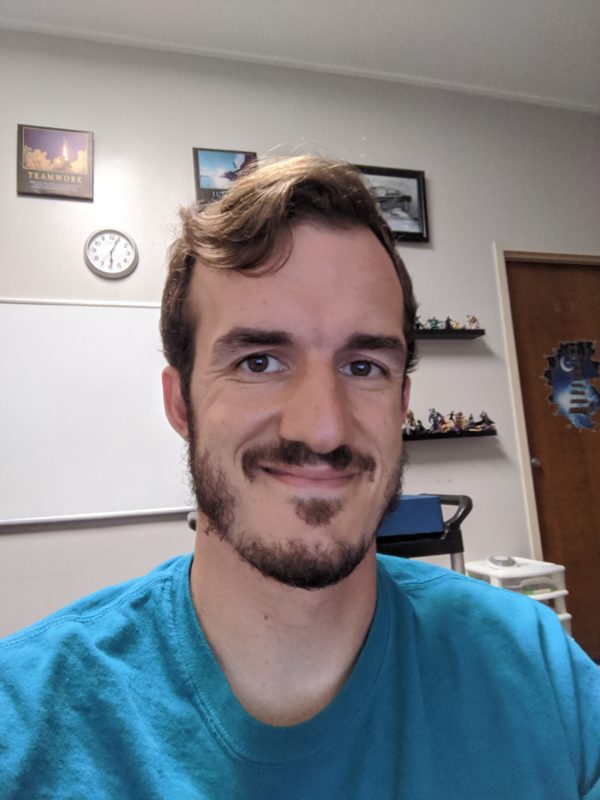Life Notes: What Really Matters
Life Notes: What Really Matters by Luke Allen It was a little over one year ago when COVID-19 began to… Read More
Life Notes: Empathy – Love, Hate, and Forgiveness
by Nick Meade
Have you ever heard that when we hate someone, it is as if we drank poison and are waiting for it to kill them? It is not a new idea that hate is wrong for us.
Most people agree that we should not hate others. Many would agree that while love and hate may share some distinct similarities (i.e., both involve strong emotions), they are usually considered opposites.
Let’s consider that love and hate are on opposing ends of a continuum. If you wholeheartedly hate someone, you are the farthest on the continuum from being able to hold love, not only for others but also for yourself. Also, continuing the continuum perspective, if you love someone, or yourself, you are farthest from hate.
So, why does it matter that we avoid hate? It matters if we wish to be capable of having empathy.
Empathy is a form of understanding, but it is also a form of forgiveness. Empathy allows us to consider how it is possible to make a mistake, no matter how heinous. It may not be necessary to love a person for empathy to be possible. Still, if we hate a person, it becomes nearly impossible to accept that they can make an understandable mistake and be forgiven.
“Hate” is a word that expresses a strong dislike or discontent with someone or something. Hate hardens our hearts and minds like dry concrete. When a person hates, it is nearly impossible to think differently about the object of their hatred. Hate believes a person cannot improve and is unworthy of receiving grace (a chance to be forgiven) in our eyes. Real hate smothers any possibility of redemption.
Obviously, hateful feelings and beliefs cannot be right for anyone. As the phrase indicates, we would be drinking a poison that could slowly lead to our emotional death.
To think a person’s mistake is unforgivable may indicate that we do not wish to understand or, even, that we cannot understand. We turn to hate in the belief that their mistake is unforgivable. In our own minds, without understanding, we consider them unforgivable and worthy of our hate. We have effectively closed our minds to the conception of how this act could be possible in our world.
Thus, we become incapable of empathy for the person who made a mistake. We are incapable of seeing how they may have reached a place in which they committed an act that we define as so despicable that we will never understand, accept, or forgive them. Hate corrodes the possibility of empathy as it provides a corner for our mind to hide in when we could be searching for grace.
We are taught to love one another across many religions, schools of thought, and philosophical perspectives. While I think we should aspire to love everyone, perfect love is impossible. I would only ask that we aim to remain on the loving end of the continuum and avoid the end that is hatred.
Our ability to love someone is motivated by an unshakable faith that their actions have value can be accepted and understood. To love someone is to be open to the chance of having empathy. When we are open to empathy, even if our dearest loved one did the most terrible thing, we would move toward understanding, acceptance, and forgiveness. Of course, if we already love this person, this idea is easier to understand.
Further, if we simply actively work to avoid hate for any one group, person, or idea, we make ourselves open to this possibility of love. Empathy is about keeping our hearts open to understanding, accepting, and forgiving the actions of another. If we truly allow for this possibility, then we are better able to love ourselves and others.
Consider this final point: if we hold hate in our hearts for another person or group because of their actions, then what happens if we or someone we love does something similar by mistake or intention? How will we love them, or ourselves, if we believe that these sorts of actions are unforgivable, unacceptable, or incapable of being understood?
Life Notes Takeaway
We must choose to avoid hate at all costs, so that empathy and love always remain possible for others and ourselves.
—
About Nick Meade
 Nick Meade is a member of our Clinical Service staff at Louisiana Methodist Children’s Home in Ruston. Born in Beckley, West Virginia, Nick graduated high school from the Louisiana School for Math, Science, and the Arts in Natchitoches. Nick attended Louisiana Tech University and graduated with a Masters in Clinical Mental Health Counseling in 2017. Nick enjoys parkour/free-running, longboarding, running, and video games. Nick says, “I have been working with the Methodist family for approximately three years and very much enjoy what I do.”
Nick Meade is a member of our Clinical Service staff at Louisiana Methodist Children’s Home in Ruston. Born in Beckley, West Virginia, Nick graduated high school from the Louisiana School for Math, Science, and the Arts in Natchitoches. Nick attended Louisiana Tech University and graduated with a Masters in Clinical Mental Health Counseling in 2017. Nick enjoys parkour/free-running, longboarding, running, and video games. Nick says, “I have been working with the Methodist family for approximately three years and very much enjoy what I do.”
—
APA Citation
Meade, N. (2020, August 2). Life Notes: Empathy – Love, Hate, and Forgiveness. LUMCFS Blog. https://lumcfs.org/life-notes-empathy-love-hate-and-forgiveness/
—
The Life Notes essays are written by staff of Louisiana United Methodist Children and Family Services.